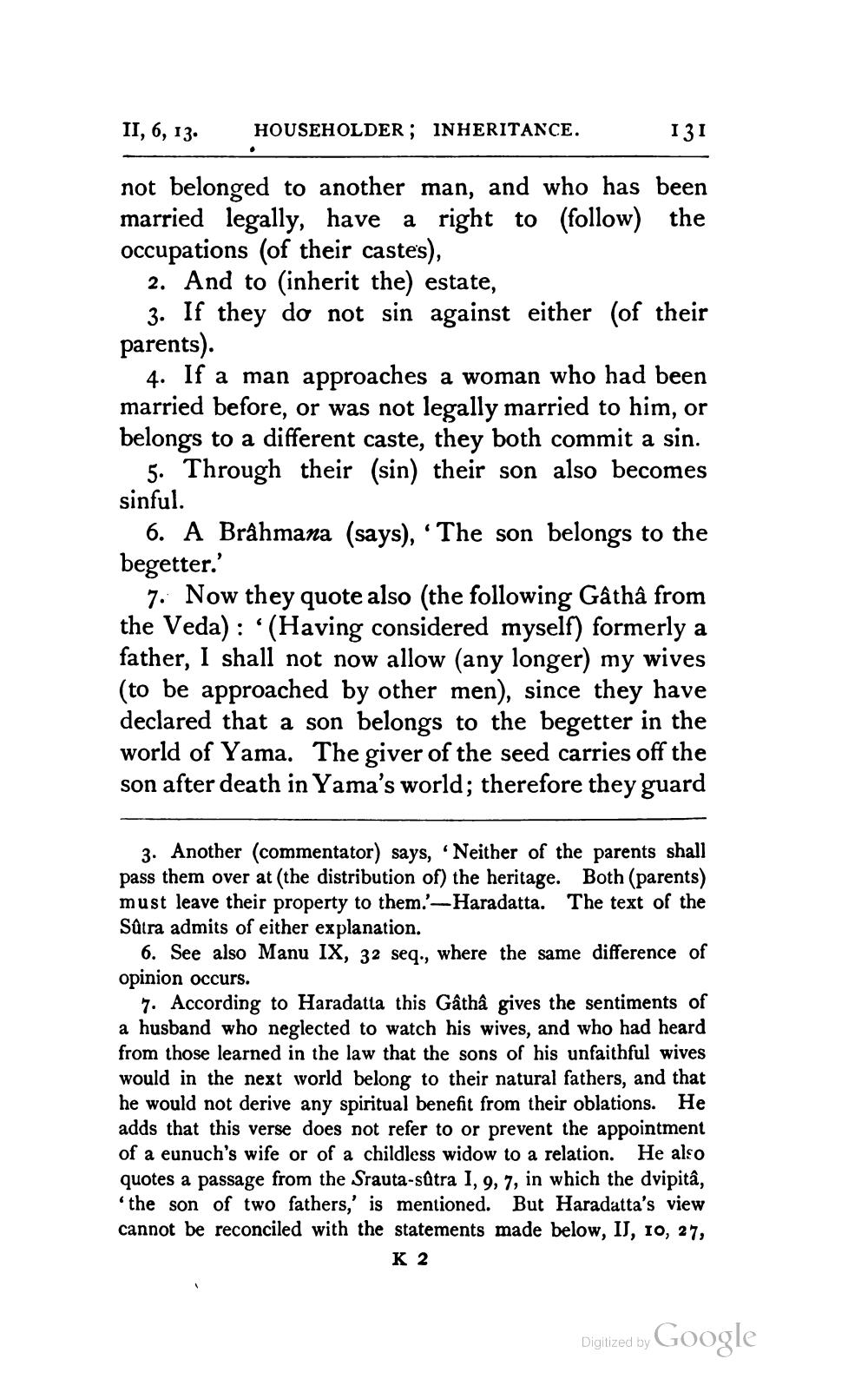________________
II, 6, 13.
131
not belonged to another man, and who has been married legally, have a right to (follow) the occupations (of their castes),
2. And to (inherit the) estate,
3. If they do not sin against either (of their parents).
HOUSEHOLDER; INHERITANCE.
•
4. If a man approaches a woman who had been married before, or was not legally married to him, or belongs to a different caste, they both commit a sin. 5. Through their (sin) their son also becomes sinful.
6. A Brahmana (says), 'The son belongs to the begetter.'
C
7. Now they quote also (the following Gâthâ from the Veda) (Having considered myself) formerly a father, I shall not now allow (any longer) my wives (to be approached by other men), since they have declared that a son belongs to the begetter in the world of Yama. The giver of the seed carries off the son after death in Yama's world; therefore they guard
3. Another (commentator) says, 'Neither of the parents shall pass them over at (the distribution of) the heritage. Both (parents) must leave their property to them.'-Haradatta. The text of the Sutra admits of either explanation.
6. See also Manu IX, 32 seq., where the same difference of opinion occurs.
7. According to Haradatta this Gâthâ gives the sentiments of a husband who neglected to watch his wives, and who had heard from those learned in the law that the sons of his unfaithful wives would in the next world belong to their natural fathers, and that he would not derive any spiritual benefit from their oblations. He adds that this verse does not refer to or prevent the appointment of a eunuch's wife or of a childless widow to a relation. He also quotes a passage from the Srauta-sûtra I, 9, 7, in which the dvipitâ, 'the son of two fathers,' is mentioned. But Haradatta's view cannot be reconciled with the statements made below, IJ, 10, 27, K 2
Digitized by Google




